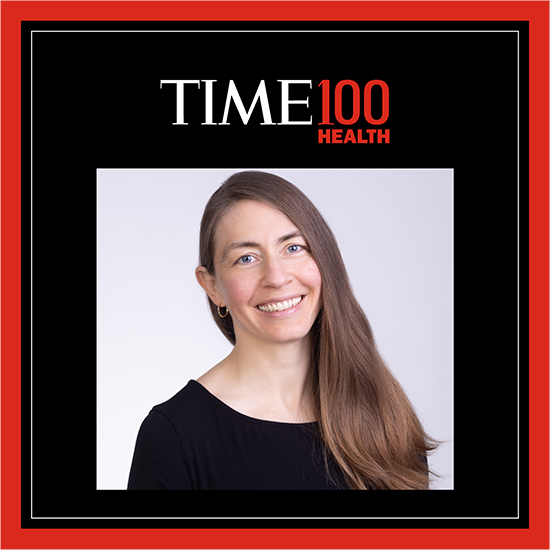By Julia Davis
July 17, 2024

Jenna Forsyth, TIME 100 honoree and CEE alum.
CEE alumna Jenna Forsyth (MSCE ’12) has been named to the 2024 TIME100 Health list, which recognizes 100 individuals who have made the most significant contributions to global health this year. Forsyth’s work studying lead exposure in vulnerable populations has led to governmental regulations in South Asia and an immediate decline in lead exposure and poisoning in Bangladesh, where her research was centered.
Forsyth’s journey into public health began during her time in CEE, where she undertook a Master's thesis on improving drinking water quality and access in resource-constrained settings, specifically on the development of a new approach to water disinfection. Her research laid the foundation for future projects on this topic and earned her the 2013 Master’s Thesis Award from the Association of Environmental Engineering and Science Professors Foundation.
Under the guidance of her thesis advisors, Michael Dodd, CEE associate professor, and Scott Meschke, environmental & occupational health sciences professor, she developed a strong foundation in research and a passion for addressing global environmental health challenges.
“Jenna was amazing to work with, and it’s wonderful to see her receive this well-deserved recognition,” Dodd says. "From day one, it was always clear that one of Jenna's primary aims in pursuing the career path she's taken was to be able to help others through her research and service — especially people from developing or otherwise disadvantaged populations, and it's been great seeing the impact she's had in that regard.”
While at the UW, Forsyth also completed a Global Health Certificate with the Department of Global Health and an internship with PATH, a Seattle-based nonprofit that focuses on health equity. She says that “this combination of advising, coursework and research experiences fueled my interest in conducting practical and applied research to solve global environmental health problems throughout my career.”
After her master’s degree, Forsyth went on to earn a Ph.D. at Stanford, where she focused on reducing lead exposure in vulnerable populations. During her Ph.D., she identified that turmeric in Bangladesh was being contaminated with yellow lead chromate pigments to make it look more vibrant, leading to lead exposure and poisoning.
The research has had a tangible impact on public health in Bangladesh, improving food safety and reducing lead exposure among the population. Speaking with TIME about the honor, she shared, “The blood lead levels we were studying were more than six times higher than those in Flint, Michigan, at the peak of the water crisis, and no one knew why.”
Her discovery led to a massive effort by the government in Bangladesh to ban the use of lead chromate, increase food safety oversight, and educate farmers and consumers on the dangers of lead chromate in turmeric. A follow-up study last year showed that the percentage of lead-contaminated turmeric samples in Bangladeshi markets had fallen from 47% to zero, and blood lead levels in turmeric mill workers dropped by 30%.
“The case in Bangladesh demonstrates the importance of credible evidence to catalyze action,” says Forsyth. “It’s so gratifying to see your work have that kind of impact, especially when the interventions are cheap — less than a penny per person. It’s really something when awareness can be a lever for change.”
Looking ahead, Forsyth is committed to expanding her efforts to identify and mitigate other sources of lead exposure globally. She continues to work with international teams to develop scalable solutions that can be adapted to regions facing similar challenges.
Forsyth is incredibly grateful to her team of researchers and colleagues. Reflecting on her achievements, she emphasizes the importance of identifying how research can lead to practical solutions.
“For me, the most significant achievement out of all of this has been translating scientific evidence into action at a national scale. It’s incredibly gratifying to see the impact in Bangladesh in a relatively short time frame,” she says.